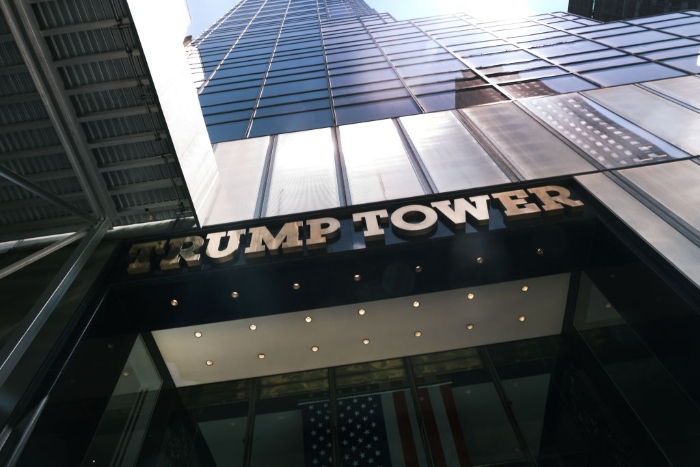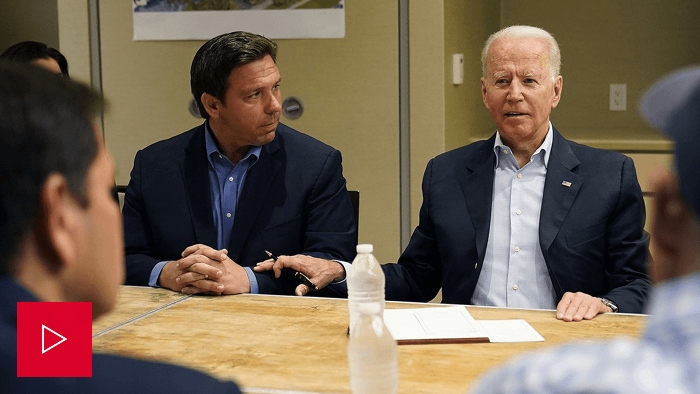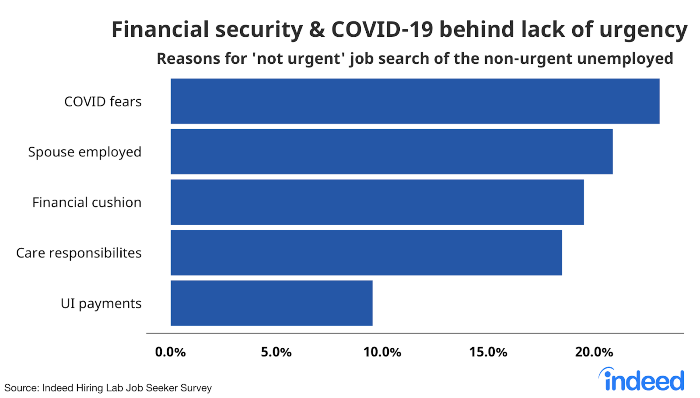| | |  | BY MYAH WARD | | INDICTED — It’s official: The Trump Organization has been charged with criminal conspiracy, grand larceny, falsifying business records and tax fraud, and its longtime CFO, Allen Weisselberg, was escorted into a Manhattan courtroom this afternoon, where he pleaded not guilty to a variety of financial crimes that carry significant prison sentences. The indictments, which allege the tax-fraud scheme ran over the course of at least 15 years, come after prosecutors spent more than two years probing the financial records of the Trump family-owned company. Manhattan District Attorney Cy Vance brought the charges, working alongside New York Attorney General Letitia James. Both officials are Democrats, which is sure to provide fuel for former President Donald Trump’s claims that the investigation is politically motivated. Earlier today, the Trump Organization accused Vance of using Weisselberg as a “pawn in a scorched earth attempt to harm the former President.”
| 
Trump Tower, home to the Trump Organization, stands along Fifth Avenue in New York City. | Spencer Platt/Getty Images | Nightly chatted with POLITICO’s Betsy Woodruff Swan over Slack to break down the charges, and what today’s news may mean for Trump. Why does this matter? Depending on how things go, it could do serious damage to Trump’s business interests. A criminal conviction could result in steep fines, loss of liquor licenses and long-term reputational damage, among other problems. And regardless of whether the company is convicted, banks and other financial institutions may be loath to continue doing business with Trump Org. because of the indictment. It’s a real problem for the company. Did anything about the indictment surprise you? The fact that this is Vance’s team’s opening salvo has left some observers underwhelmed. Vance has eight years of Trump’s tax returns, and has put a large and well-resourced team of prosecutors on this case. Many people were expecting more (including charges against the former president himself). The conduct as alleged is obviously egregious. But — so far! — it hasn’t lived up to some people’s expectations. That said, the investigation is ongoing and more charges could come. Here’s what Ben Wittes — who runs Lawfare blog for the Brookings Institution and follows Trump’s legal woes very closely — told me: “If you had told me a year ago when this stuff was at the Supreme Court that this is what it would ultimately be about, I would have said, ‘Oh.’” With the charges not mentioning Trump or his family members, what is the risk for the former president? It’s honestly hard to say. The rest of the probe is a bit of a black box. But there’s always risk when your company as a whole is indicted. How much of this do you think is about getting Weisselberg to cooperate with prosecutors? And how likely do you think he is to flip? Weisselberg cooperation: I’ve heard different things from different people on the specifics of the strategy. How likely is he to flip? He’s facing the rest of his life in prison, based on the charges they’ve brought. That’s a much longer potential sentence than some were expecting, and certainly puts him under real pressure. Did the indictment tell us anything more about Vance’s strategy, or how he’s handling the case? It’s notable for what’s not in it: Nothing on hush money payments, nothing on manipulation of property values, nothing on shady foreign business partners, nothing on illegal activity related to Trump’s personal taxes. So that means that either indictments related to those topics may be forthcoming, or they’re off the table altogether. Do your sources have any predictions about what may be next? Sadly no! People are all over the place. We have more about the far reaching consequences of the indictment, including a piece about business risks to the Trump Organization, a look at how House Democrats lament their lack of power and an explainer on the tight connection between the former president and his organization . Welcome to POLITICO Nightly. We won’t be publishing on Monday, July 5. But we’ll be back and better than ever Tuesday, July 6. Reach out with news, tips and ideas for us at mward@politico.com, or on Twitter at @MyahWard.
| |
A message from AARP: Millions of family caregivers are struggling to provide care for their older parents and spouses. Many are sacrificing their income, tapping into life savings, and taking on debt to keep their loved ones safe—at home and out of nursing homes that could put their lives at risk. Family caregivers are reaching their breaking point. Congress must pass the Credit for Caring Act now to give caregivers some of the relief they desperately need. Learn more. | | | | | — Cheney joins Dems on Jan. 6 probe, defying McCarthy threat: Speaker Nancy Pelosi has chosen GOP Rep. Liz Cheney to join the Democrat-led investigation of the Jan. 6 Capitol attack , a rare cross-aisle elevation of one of Trump’s most prominent conservative critics. The select committee on the insurrection will be helmed by Rep. Bennie Thompson (D-Miss.), who had previously crafted a bipartisan plan to establish an outside commission to lead the probe into the Jan. 6 violence. After Senate Republicans blocked the investigation, the House Democratic majority opted to create a new panel, which won just two Republicans on the floor on Wednesday.
| 
| — Biden, DeSantis survey Surfside collapse scene: This morning, Florida Gov. Ron DeSantis praised Biden’s federal response to the collapse of a condo building in the coastal Miami suburb of Surfside — providing a moment of bipartisan bonhomie between the leader of the Democratic Party and a rising star within Trump’s GOP. Speaking at a command briefing near the site of the deadly disaster, DeSantis — seated beside Biden — said the president had “recognized the severity of this tragedy from day one, and you’ve been very supportive.” — Supreme Court sides with Arizona on voting restrictions: The Voting Rights Act sustained another blow at the Supreme Court today, as the justices took a narrow view of when a state’s voting practices can be held to violate the rights of minorities. In a pair of high-profile cases from Arizona, the justices split 6-3 along ideological lines, with the conservative majority concluding that a disparate impact on minority groups would typically not be enough to render voting rules illegal under the act. — California elections chief certifies Newsom recall election: California’s elections chief certified the gubernatorial recall today, setting up a September 14 election to consider whether Gov. Gavin Newsom should remain in office. It officially marks the state’s second-ever gubernatorial recall after the 2003 ouster of then-Gov. Gray Davis, whom voters replaced with Gov. Arnold Schwarzenegger.
| |
| | SUBSCRIBE TO WEST WING PLAYBOOK: Add West Wing Playbook to keep up with the power players, latest policy developments and intriguing whispers percolating inside the West Wing and across the highest levels of the Cabinet. For buzzy nuggets and details you won't find anywhere else, subscribe today. | | | | | | | SEARCHING HARD OR HARDLY SEARCHING? Friday morning, the federal government will release its much-anticipated June jobs report — a key gauge of where exactly the labor market stands after months of disappointing numbers. Economists predict that the U.S. added around 700,000 jobs in June — which would be up from 559,000 in May, but still much lower than the unrealized forecasts from months ago projecting gains of at least 1 million. What explains month after month of disappointing jobs numbers? Many Republicans have endorsed a straightforward answer: boosted unemployment benefits are keeping would-be employees from taking jobs, leading to a worker shortage — and there is some evidence for that, like a recent WSJ report that states where GOP governors have ended the supplemental payment are seeing their labor market bounce back quickly. But a new study by the job-listing website Indeed suggests that reality may be a bit more complicated.
| 
| Just roughly 10 percent of job seekers — both employed and jobless workers — were “urgently” looking for work in late May and early June, according to Indeed’s survey of 5,000 Americans. And among those who were urgently looking, more than 20 percent said they didn’t want to start work immediately. Why? Fears related to Covid-19 topped the list of respondents’ explanations for their lack of urgency. The number two reason? Employed spouses. Having a financial cushion came in third, and UI payments was at the bottom of the list, cited by less than 10 percent of respondents. Myah talked with Nick Bunker, Indeed’s economic research director for North America, about how this survey compares to other economic data, and what questions he was left with after seeing the responses. This conversation has been edited. What surprised you about the data? One was that sort of urgency mismatch, or just the extent to which lots of jobseekers right now are willing to be pretty patient. Even among people who are actively and urgently searching for a job, about 20 percent don’t want to start a job immediately. That sort of displays the mismatch, as so many employers want to urgently and quickly staff up. It wasn’t quite “surprising,” but Covid continues to be a concern — not only the [health] fears, but when it comes to the milestones people want to see before starting a job or entering into employment — particularly vaccinations. That was not only just for themselves, but for other people they’re frequently in contact with at work — coworkers or customers. It’s [about] their perceptions of how others they interact with are handling the end of the pandemic and post-pandemic life. Do you think the way people responded — citing UI payments at the bottom of the list — was honest? It’s a survey, so we depend on what people say. But if you see, one of the answers was [that respondents had] an increased financial cushion. You can imagine UI possibly contributing that way indirectly: that maybe if they’ve saved large chunks of it, they have this financial cushion and that’s why they might not be searching urgently right now. There has been a lot of extra saving during the pandemic, and lots of that is folks at the top of the income distribution, but there have been savings by people at the bottom as well. And yes, that savings could get spent as people celebrate what seems to be the end of the pandemic, but it also could be that people just keep that savings, or use it to maybe wait out the labor market a little bit to see what things look like in the fall. The UI benefit could go away tomorrow, but they may have savings that could support them in the next couple weeks or months or maybe even longer. What are your thoughts about how this survey data compares to other economic data? The WSJ, for example, had a report showing that states that cut some UI payments have seen increased employment. Part of the reason why we did this survey was to better understand what’s happening on the supply side of the labor market. Demand is really high. The gap we were trying to fill in was: Why does the labor force participation rate continue to be so low? Why, even if people are looking, are they not jumping into jobs right now? Our goal is to complement the publicly available data from the government, which really is the gold standard. What questions did the data leave you with that you’re hoping to dig into next? Will we see, maybe in a couple months as time moves on, the sort of collapse of people saying that they’ll take a job? I’ll be looking at the share of job seekers who want to start a job immediately. Does that pick up? What happens to job-searching among the employed? Are people who already have a job more actively searching for jobs, assuming that demand for work continues to pick up?
| |
| |  
| | | | | Nightly asks you: Last summer, before July Fourth, we asked you how the pandemic changed your holiday . After a year of surges, vaccines and variants, we want to know: How are you celebrating July Fourth this year? Is the pandemic still affecting your usual plans? Send us your answers using our form, and we’ll include select responses in our Friday edition.
| | TAX MUNDI — The world’s largest economies agreed today to sweeping changes to the global tax system, despite staunch opposition from low-tax nations like Barbados, Ireland and Hungary. Four officials at the talks told POLITICO that 130 countries had signed on to the deal, which the Organisation for Economic Cooperation and Development announced soon after. The initiative aims to introduce a global tax for the world’s 100 biggest companies and set an international minimum effective corporate tax rate of at least 15 percent. Nine countries, mostly offering low corporate tax regimes, opposed setting the minimum rate, the people added, speaking on the condition of anonymity. All G-20 countries — including the U.S., China and France — backed the deal, and their finance ministers are scheduled to approve the agreement on July 9. Many of the details within the deal, such as possible exemptions for the financial industry and manufacturing, were left out of the current pact and will now be hammered out ahead of an October deadline.
| |
| | JOIN FRIDAY FOR A PLAYBOOK INTERVIEW WITH ANITA DUNN: Anita Dunn, a senior White House adviser to President Biden and one of the most influential women in Washington, will join Playbook co-author Ryan Lizza to discuss the administration’s legislative priorities, including getting the massive infrastructure plan through Congress, the latest on efforts to get 70% of U.S. adults vaccinated against Covid, and preparations for the White House’s first big public event on Independence Day. Don’t miss this Playbook Live event, REGISTER HERE. | | | | | | | | |
| | | TO BE SPOOKED, OR NOT TO BE SPOOKED — Should you be freaking out about the Delta variant? Probably not if you’re fully vaccinated. But, as health care reporter David Lim reports in the latest POLITICO Dispatch, it could cause some problems down the road — especially in areas with lower vaccination rates.
| | | | #FREEBRITNEY INVITED TO THE HILL — Rep. Matt Gaetz of Florida and a handful of other Republicans have invited pop star Britney Spears to testify before Congress about her conservatorship. “You have been mistreated by America’s legal system. We want to help,” Gaetz wrote in a letter to Spears dated Wednesday. “The United States Congress should hear your story and be inspired to bipartisan action. What happened to you should never happen to any other American.” Gaetz said he and fellow Republican Reps. Marjorie Taylor Greene (Ga.), Burgess Owens (Utah) and Andy Biggs (Ariz.) have been following her conservatorship battle with “deep concern” and stand with the pop star. Rumors about Spears’ discontent with her conservatorship spread for years online and trended with the #FreeBritney hashtag. But last week, Spears spoke directly about the issue herself in court, describing her conservatorship as “abusive.” Spears’ father, Jamie Spears, has been the legal manager of his daughter’s multimillion-dollar estate since 2008. He was also the conservator “of her person” until 2019, when he stepped back from this part of the legal agreement for his own health reasons. Since then, Jodi Montgomery, a private professional fiduciary, has been in charge of Spears’ person.
| |
A message from AARP: Family Caregivers Need Help Now
Caring for loved ones shouldn’t lead to bankruptcy and financial ruin. But that is exactly what is happening for too many family caregivers. The financial strain of caregiving is immense, and it is unacceptable that more isn’t being done to provide support for them. That’s why AARP is fighting for America’s 48 million family caregivers and their loved ones who depend on their care to survive. Family caregivers nationwide spend over one-quarter of their income, on average, providing this essential care. Congress must pass the Credit for Caring Act to help alleviate some of the financial strain of caregiving.
Tell Congress to act now to help protect family caregivers from financial devastation. Tell Congress to pass the Credit for Caring Act. | | | Did someone forward this email to you? Sign up here. | |
|
| | Follow us on Twitter | | | FOLLOW US
|
| |

No comments:
Post a Comment
Note: Only a member of this blog may post a comment.